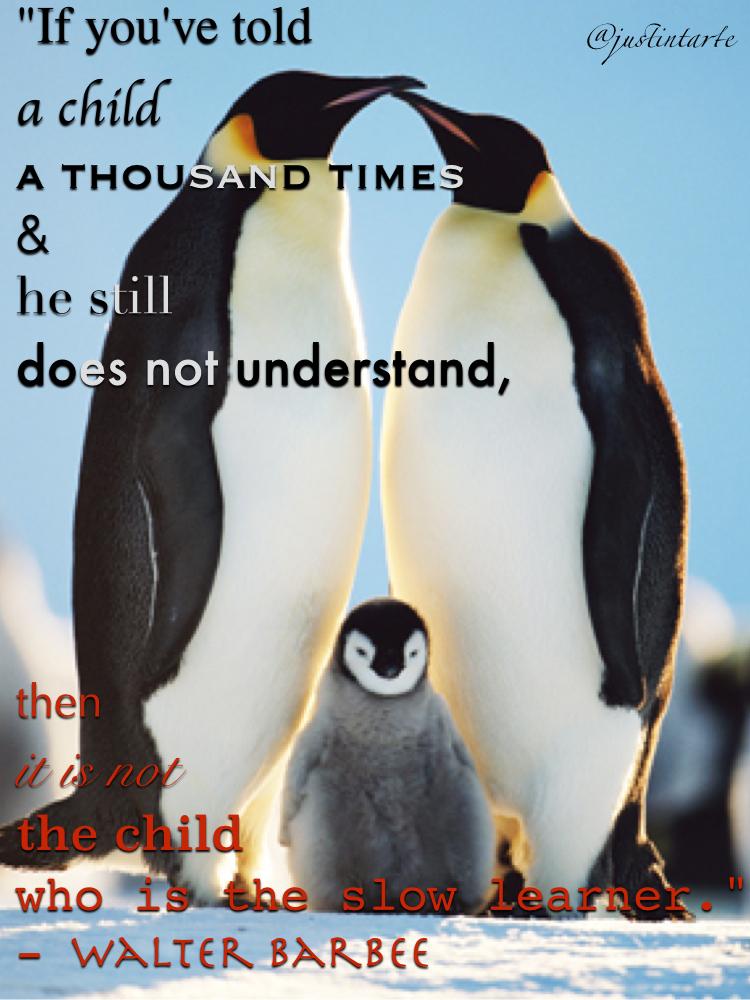
First, "told" and "understand" are words that cover a wide range of meanings. If I've told a student a complex idea a thousand times in the same way and s/he doesn't understand, then I've done a bad job. I should find other ways to "tell."
If I've tried a variety of explanations, asked student colleagues to help explain, asked the student to explain what s/he does understand and tried to fill in the difference, etc., then we've got a more complex situation whose solution is also more complicated.
If I've told a student the same simple task (don't do your math in our English class, don't tip your chair back, put your name on your work when you turn it in), and s/he doesn't understand (which is really 'doesn't do it'), we've got yet another situation.
Youngsters (I work with 8th graders) do indeed have natural and "normal" brain development variations (from each other and from adults) that cause reasonable and legitimate explanations for each of the scenarios described above. One such difference from adults is that the neural pathways in those portions of the brain that deal with both more complex thinking and administrative details (the much discussed "executive function") are still getting myelinated--more myelin means those neurons operate more effectively and efficiently, so in a technical sense most teenagers are a little slow(er) in the head (than most adults).
And teachers need to be cognizant of this. But delivering a barbed jab at teachers or parents in the form of this sarcastic statement is not only cheap (sarcasm is, after all, the last refuge of scoundrels), it offers no real insight.
No comments:
Post a Comment